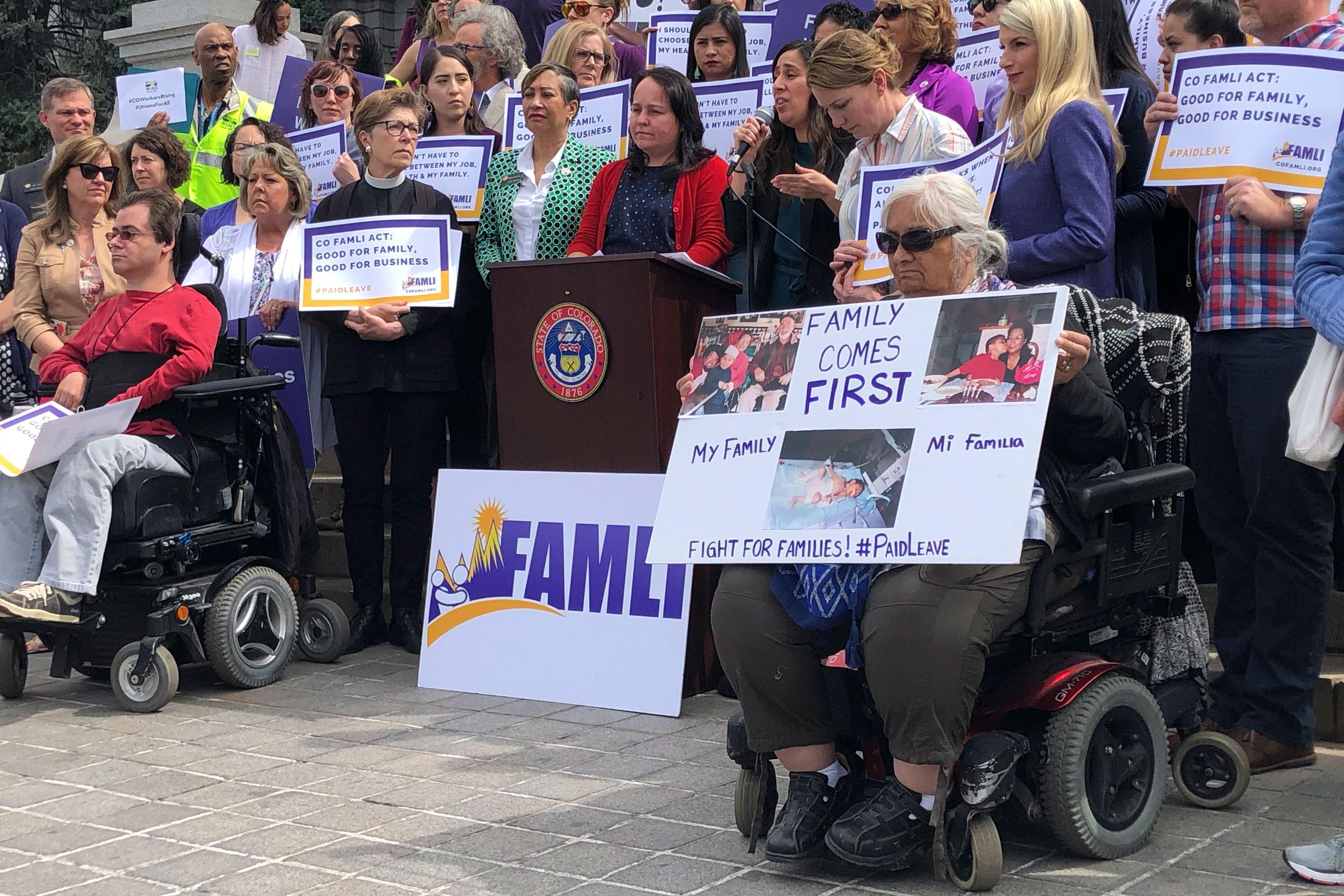

What started out as an ambitious plan to set up a statewide paid family leave program will end up as a task force to study the idea, but sponsors say they hope it improves their chances of getting the program approved when they introduce it next legislative session.
Without the votes to pass Senate Bill 188, the Democratic sponsors have rewritten it. They are proposing to authorize an actuarial study on the idea during the legislative off-season.
“We feel like it really is an implementation plan because it's everything we were going to do in the first year anyway,” said Democratic Sen. Faith Winter of Westminster, who is one of the main sponsors of the bill. “We were going to put the task force together, we're going to create a staffing plan. We have a public comment period. The only extra stuff that we added was coming back to the legislature this next year.”
Winter said she’s still aiming to have a family leave fund set up by 2023, with benefits starting to pay out in 2024. That was the timeline envisioned by the bill.
One thing the proposed task force would examine is whether the program should be administered by the state or contracted out to a third party.
The paid family leave bill got significant push back from the state’s largest business groups who were skeptical about its implementation and whether it would be financially viable. Despite months of negotiations, major sticking points remained such as how the state should define “family,” and whether companies with their own paid family leave plans could opt out of the state-run system.
On Wednesday, business groups celebrated the decision to rework the bill.
“I think it's a win for everyone, not just the business community, not just our retail members,” said Angie Howes, the lobbyist for the Colorado Retail Council. “I think for Coloradans that would like to have some type of paid family leave that don't currently have it, you're making a very big promise with this type of program. So it's really important to make sure that you can keep that promise.”
The original measure would have partially reimbursed employees for up to 12 weeks of leave if they took time off to bond with a new child, care for a sick loved one or deal with their own serious illness. Democrats hold a two-vote majority in the Senate, so when a handful of Democratic senators had concerns, it was enough to defeat the bill before if could move to the House.
Democratic Gov. Jared Polis also wanted to see changes.
“From our perspective, any program would need to be actuarially sound and would need to be a win for the business community as well as families,” Polis said at a recent press briefing.
For supporters of paid family leave, the legislature’s failure to commit to creating the program is disappointing. Advocates say they already compromised a lot to try to bring the businesses community on board, and that the idea doesn’t need any further study. Still, they said this fate is better than moving forward with a watered-down proposal.
“Our coalition just really could not stand by any more amendments,” said Judith Marquez, a co-director for 9to5 Colorado, which supported the measure. “That would really hurt the program and in the end would really hurt families.”
They were not willing to compromise on the length of paid leave or which workers could qualify, and wanted to be inclusive of all family structures.
Marquez and other advocates also said that instead of helping, Polis made the negotiations even more difficult. Marquez said she found that surprising given his earlier statements.
“He said that this was a priority in the State of the State [speech], that paid family medical leave was an important issue for him. And so again we think that the blocking of a paid family leave program, you know, was a wrong step,” Marquez said.
While larger business groups opposed details in the bill, many small businesses backed it. Hunter Railey, with the Colorado Small Business Majority, said he hopes Democrats don’t delay implementation of a statewide leave program.
“It's a tight labor market. It's hard to retain employees and recruit them. So anything we could do to support business owners is greatly appreciated.” he said.
Still he said he’s glad at least something is moving forward.
“Once we go through this process again and come back next year, we're going to find ourselves in the same spot with better data, and ready to go at that point,” Railey said.
Editor's note: This story originally misspelled Angie Howes' name. It has been corrected.








